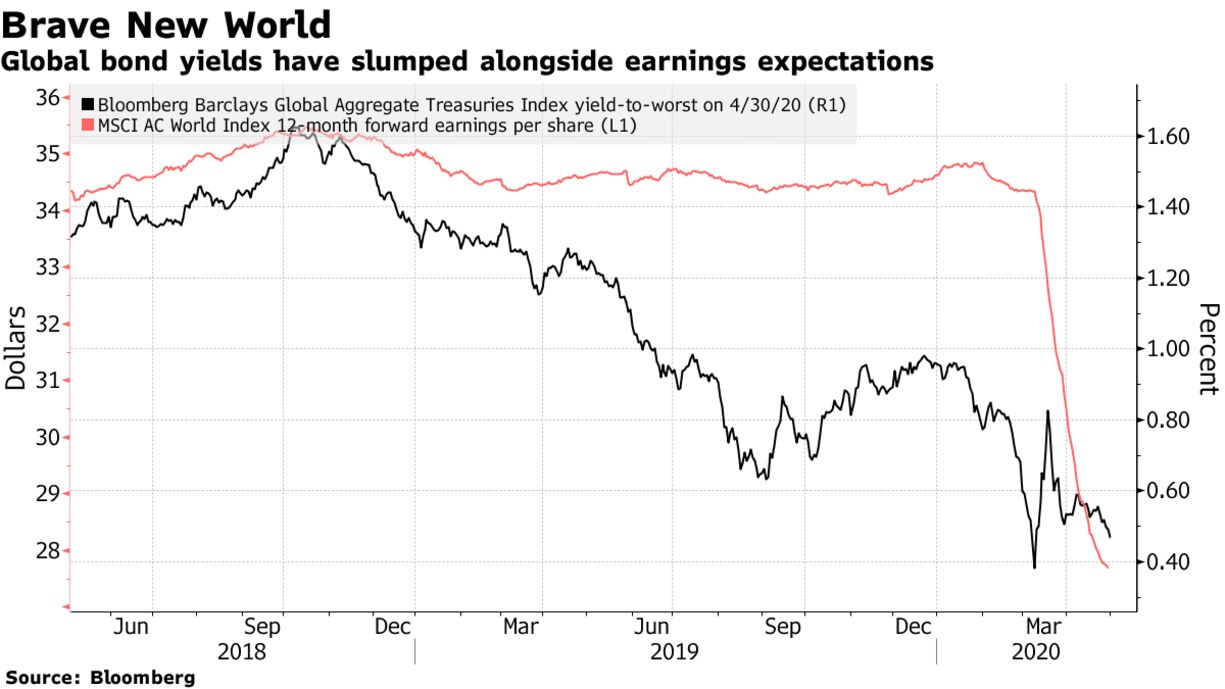The best month for global equities in almost a decade may be enough to convince investors the light at the end of the coronavirus tunnel isn’t a train, but the debate on what comes next is only just beginning as they adjust their focus to a financial landscape utterly changed by the pandemic. An indisputable take away from the crisis is a massive expansion in global debt — given the more than $8 trillion in fiscal measures worldwide, according to a Bloomberg compilation. Corporate balance sheets will have changed, as CFOs seek to bolster their capital through equity and debt raisings. Millions will have lost their jobs at least for a time, and labor mobility between nations may be impaired. And supply lines will be reshaped, at least in some fashion.
Depending on how it all shakes out, there will be implications for corporate earnings and interest rates that will affect investment decisions for years if not decades to come, some analysts are now saying. Should the epidemic continue to ebb, that’s set to become the key debate in markets as the year progresses.

“The high debt levels across all sectors and large-scale nationalization of the economy will, in absence of an exit plan, restrain investment and reduce productivity in the long run, giving rise to secular stagnation or at some point stagflation,” said Commerzbank AG strategist Christoph Rieger. “Corporates will have to shoulder a large part of the bill.”
